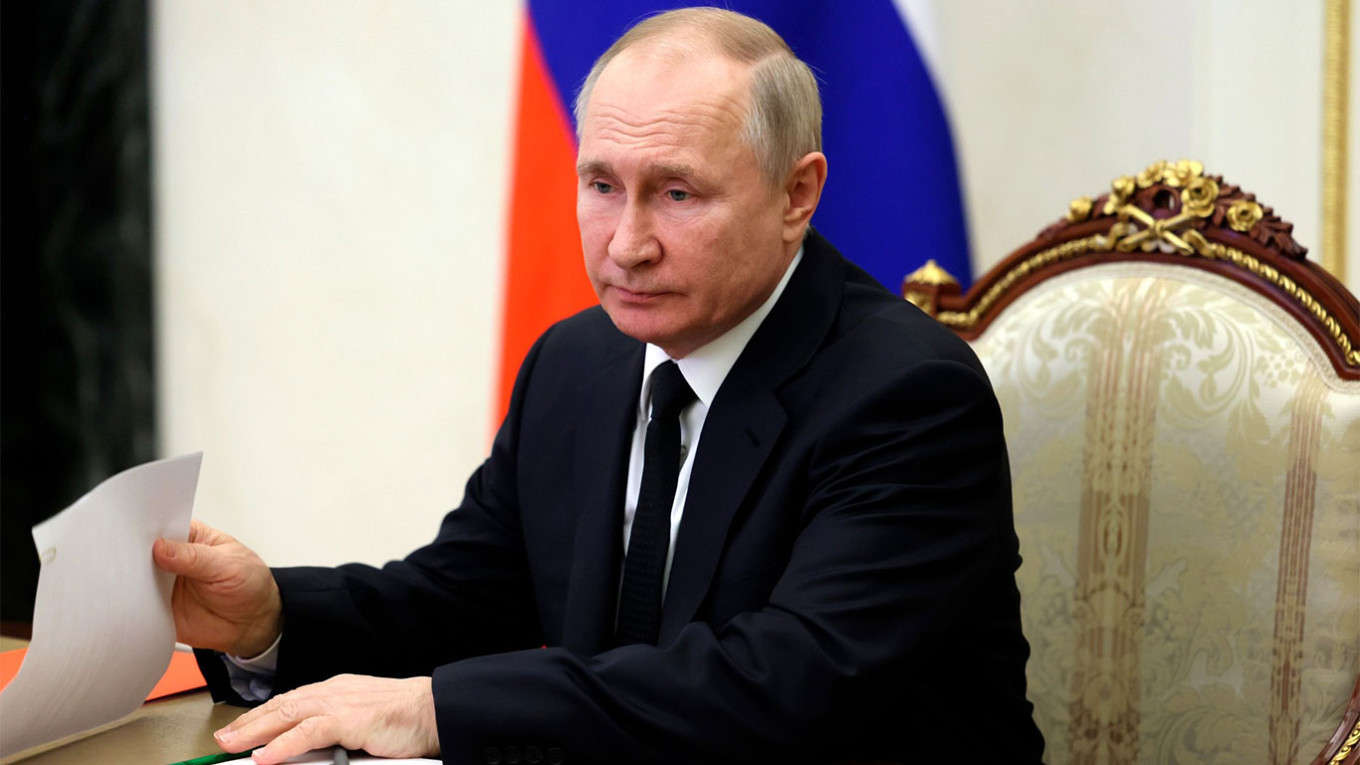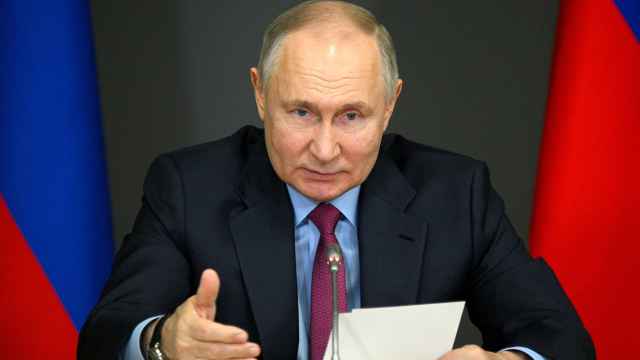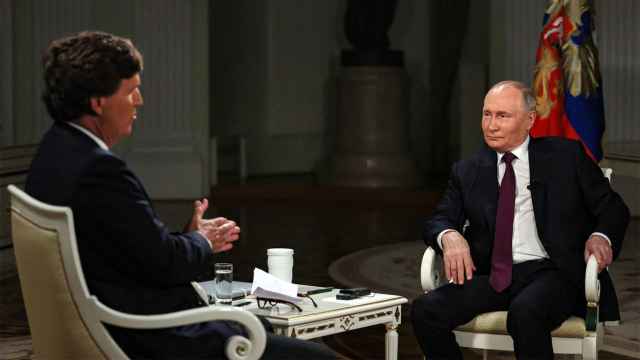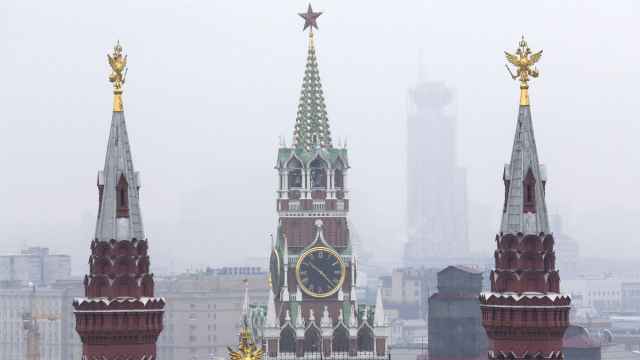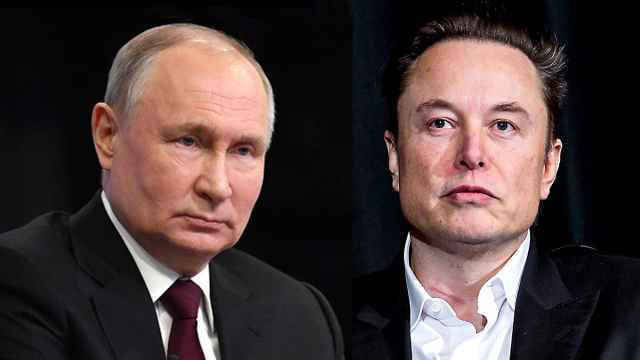President Vladimir Putin on Tuesday met with top officials on Russia's "domestic security" as the Kremlin said the latest Ukrainian drone attacks presented a danger to the country.
Earlier Tuesday, authorities said that a drone had struck near an airfield in Russia's Kursk region bordering Ukraine, a day after Moscow blamed Kyiv for drone strikes at two other airfields.
Monday's drone strikes were highly unusual as both sites are hundreds of kilometers away from Ukraine's border.
The Kremlin said on Tuesday that Putin convened a meeting of his Security Council to discuss how to ensure the state's "domestic security." No other details were provided.
Speaking to reporters separately, Putin's spokesman Dmitry Peskov said authorities were taking "necessary" measures to protect the country from Ukrainian attacks.
"Of course, the line openly declared by the Ukrainian regime to continue such terrorist acts is a danger factor," Peskov told reporters when asked about the drone strikes.
Earlier Tuesday, Kursk Governor Roman Starovoyt said that as a result of a drone attack near a local airfield an oil storage tank caught fire. There were no casualties and Starovoyt did not specify where the drone originated.
On Monday, Russia's Defense Ministry said Ukraine "attempted to strike" the Dyagilevo airfield in the central Ryazan region and the Engels airfield in the Saratov region with "Soviet-made drones."
Engels is a base for the country's strategic aircraft that Kyiv says have been used to strike Ukraine.
As a result of those strikes three soldiers had been killed and four others injured, the ministry said without providing further details. Two planes were also slightly damaged.
The Kremlin has kept a tight lid on its human and material losses during Moscow's offensive in Ukraine.
A Message from The Moscow Times:
Dear readers,
We are facing unprecedented challenges. Russia's Prosecutor General's Office has designated The Moscow Times as an "undesirable" organization, criminalizing our work and putting our staff at risk of prosecution. This follows our earlier unjust labeling as a "foreign agent."
These actions are direct attempts to silence independent journalism in Russia. The authorities claim our work "discredits the decisions of the Russian leadership." We see things differently: we strive to provide accurate, unbiased reporting on Russia.
We, the journalists of The Moscow Times, refuse to be silenced. But to continue our work, we need your help.
Your support, no matter how small, makes a world of difference. If you can, please support us monthly starting from just $2. It's quick to set up, and every contribution makes a significant impact.
By supporting The Moscow Times, you're defending open, independent journalism in the face of repression. Thank you for standing with us.
Remind me later.


